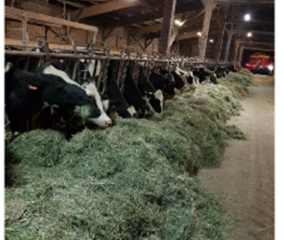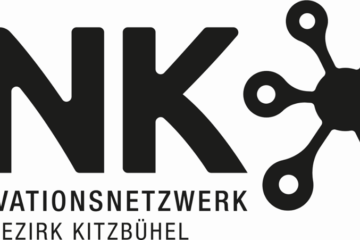Interterritorial cooperation project: « ecotourism in the natura 2000 network in Castilla – la Mancha »
Spain
Introduction
It is the trip to the best of nature in Castilla – La Mancha, recognized through our network of Red Natura 2000 spaces, with tourism companies committed to conservation and local development, and that have established a collaboration with the managing entities. of protected natural spaces, and whose common thread is the Recognition System for the sustainability of Nature Tourism in the Natura 2000 Network.
Presentation of the project
“ECOTOURISM IN THE NATURA 2000 NETWORK OF CASTILLA – LA MANCHA” is an innovative and demonstrative project that emerged with a vertical, bottom-up, comprehensive approach by linking to the Ecotourism Club in Spain, with the aim that the results of the cooperation project have continuity. The product and the experiences created will improve the use of natural heritage (natural spaces, geology, flora, fauna, landscapes) and cultural heritage (rock art, archaeological sites, transhumance, etc.), positively influencing the economy of the participating territories. Given the fragility of these spaces, it is necessary for tourism companies to apply good practices, which is why it is planned to implement the “System for recognition of the sustainability of nature tourism in the Natura 2000 Network”, designed by the General Subdirectorate of Biodiversity and Natural Environment of MITECO, together with the Secretary of State for Tourism. This system consists of a process of training and supporting companies to help them create their own ecotourism offer, while improving their costs and being more efficient, and informing their clients of how they can enjoy the spaces of the Natura Network. 2000. 35 tourism companies in Castilla – La Mancha have been able to take measures to make their activities more sustainable, and use the interpretation of natural and cultural heritage as a tool to configure ecotourism experiences (nature observation and photography, hiking, astrotourism, scientific tourism, geotourism, environmental education activities, etc.). The result has been that companies are better prepared and offer experiences that act as promotional elements for the participating territories. Its general objective has been to create the Ecotourism product in Castilla – La Mancha with tourism companies located in a network of regions with Natura 2000 Network spaces, and the participation of the environmental and tourism administration, to contribute to the sustainable development of the regions. involved, improving the profitability of small tourism companies and carrying out differentiated promotion of these regions to reach consumers. The cooperation project is aimed at the following recipients: small businesses and self-employed workers in the tourism sector, tourism managers, managers of Red Natura 2000 spaces and the local population. The Natura 2000 Network areas of application and that have joined the SRSTNRN2000 are the following: ZEC-ZEPA SIERRA MORENA (Ciudad Real. VALLE DE ALCUDIA); ZEC-ZEPA SIERRA DE ALZARAZ Y SEGURA AND CANNONS OF SEGURA AND MUNDO (Albacete. SIERRA DEL SEGURA AND SACAM); BONILLO STEPOPE ZONE SPA (Albacete. SACAM); ZEC – SERRANÍA DE CUENCA SPA (Cuenca. PRODESE); ZEC PLAINS OF OROPESA, LAGARTERA AND CALERA AND HUTS (Toledo. CAMPANA DE OROPESA); TIETAR VALLEY SPA AND ROSARITO AND NAVALAN RESERVOIRS (Toledo. CAMPANA DE OROPESA); ZEC-ZEPA ALTO TAJO (Guadalajara. MOLINA DE ARAGÓN-ALTO TAJO); ZEC-ZEPA MONTES DE TOLEDO (Toledo. MONTES DE TOLEDO; Ciudad Real. ENTREPARQUES); ZEC – SPA TABLAS DE DAIMIEL (Ciudad Real. ALTO GUADIANA MANCHA).
The Project assumes that 33,950 km2 of protected natural spaces are under a Sustainable development and management model, covering 70% of the Natura 2000 Network of Castilla – La Mancha and 294 municipalities. 105 companies have been trained in Red Natura 2000, and more than 50,000 people have been reached on social networks.
The LEADER approach has been the common thread in public-private collaboration at the local, regional and even national level, with collaborating entities of the Project at the national level being the Secretary of State for Tourism and the Ecotourism Association in Spain. At the Regional level, apart from the 9 participating Local Action Groups, there are the General Directorate of the Natural Environment and Biodiversity from the Ministry of Sustainable Development, the General Directorate of Tourism and Crafts of the Ministry of Economy, Business and Employment, and the Ministry of Agriculture, Livestock and Rural Development that co-finances the Project (7%), together with the Ministry of Agriculture, Fisheries and Food (3%) and the EAFRD 90%.
Innovative character of the project:
- Relationship of the EDLP of the participating GDRs with the objectives of the cooperation project, they have large areas of protected natural spaces in common.
- Innovative principle and demonstrative effect for any territory by applying a seal of sustainability and tourism quality at the national level, which contributes to the Sustainable Development of spaces and tourism companies (Accommodation and service companies), contributing to Sustainable Development.
- Objective of shared interest, prioritizing the conservation and local development of the territories.
- Public-private collaboration between the managers of the spaces and the companies that operate in those territories.
- Eligibility conditions: Technical assistance, training and territorial promotion.
- Framing of the actions to the associated priorities and focus area: 1 A, 1 B and 1 C. 4 A and 6 B.
- Scope of action: Regional. Applicable to any Territory.
- Beneficiaries: GAL, tourism companies, tourism managers, ENP managers and the local population.
- Network management. Common actions.
- Promotion and dissemination of the project.
- Coordinated execution control and monitoring system.
- Collaboration agreement and economic commitment.
Pictures














1 Comment
MARGARITA MELGOSO NAVARRO · 29 November 2023 at 11h05
PUBLIC VOTE
Comments are closed.